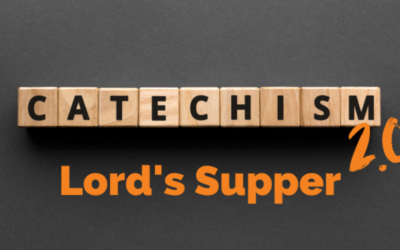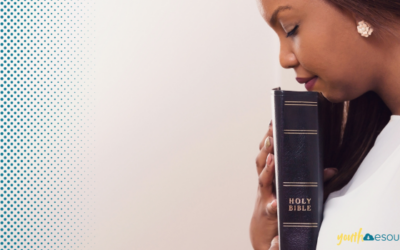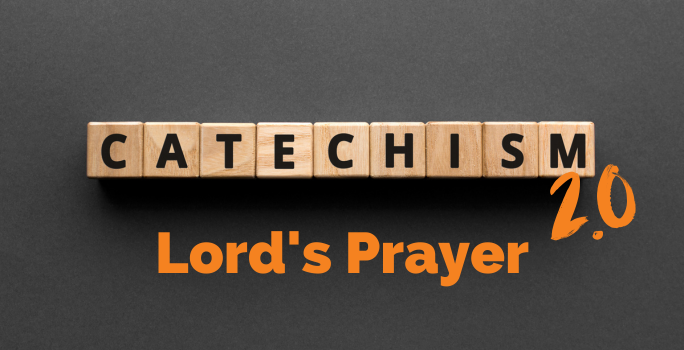Text: Genesis 9:8-17 for the Ninth Sunday after Pentecost, Lectionary Series B
Download a PDF of the Word One Bible Study for Pentecost 9B Old Testament.
THEME
In a world of disaster and brokenness, all of creation looks up to see a sign of God’s faithfulness and promises kept.
OBJECTIVES:
Participants will…
- discover the meaning and significance of a covenant, comparing it to promises made (and broken) in society today.
- examine the sign of the rainbow and relate it to God’s ultimate sign of faithfulness and mercy found in Jesus Christ.
- be challenged to “look up,” recall, and share God’s grace in their lives.
GROUP GUIDELINES
This study is meant to be used in small groups of five to ten. Sit in a circle, so that everyone is facing the group. If your group is larger than ten, it might be best to form two smaller groups in different parts of the meeting space. If needed, divide into groups based on the last time the participants took a shower (hopefully today or yesterday!) For Small Group Leaders, choose an adult or youth who has demonstrated faith maturity or leadership skills. The small group leaders should try to keep the conversation moving (mostly on-topic), while trying to include everyone in the conversation. Folks are allowed to “pass” if they don’t feel comfortable reading or answering a question, but everyone should try to be a supportive part of the group. Distribute the Lesson Guide and a Bible to all participants. Work through the lesson at your group’s pace, but pay attention to the clock, trying to finish on time.
WARM-UP ACTIVITY
Low-Risk Option (for new groups or groups with new people): “Take time to get acquainted with your group. Share your name and school and tell about your favorite thing to do on a rainy day.”
Medium-Risk Option (groups with an established relationship): “Tell the group about a time that someone broke an agreement or a promise. Let the group try to guess if you were the promise-breaker or if it was someone else who broke the promise. Begin your stories with the phrase, ‘This person became a promise-breaker when…’”
LOOKING AT GOD’S WORD
- Make a list of items that become legally-binding when you add your signature or name to them.
- Which of the items on your list already have your name on them?
- Which do you look forward to putting your name on some day?
- Which do you never want to see your name upon?
- Why does society have legally-binding documents like these?
- Now read Genesis 9:8-17 in your group (each person reads one verse).
- Notice that the word COVENANT is used several times in this passage. COVENANT is defined in the dictionary as “an agreement between two or more persons; a formal agreement of legal validity, especially one under seal.”
- While most agreements are two-sided (each person agrees to do something or the deal is off), many of God’s agreements or covenants are one-sided (He promises to do something even if we don’t keep our end of the bargain). What are the promises made in this Scripture, who makes the promise, and who benefits? Can you name any other covenant promises and benefits from the Old Testament?
- God’s Covenants are accompanied by a sign to seal and remember the promise. Think of Abraham and circumcision (ouch!), as well as Moses and the Ten Commandments. What was the “sign” that marked God’s promise to Noah and the world after The Flood? According to Genesis 9, what does God remember when he sees the “bow in the clouds”? What are you reminded of when you see a rainbow? What does the rainbow tell you about our God?
- We look up to see rainbows and remember God’s Old Testament promises kept, but these are just a “drop in the bucket” compared to God’s new covenant promises in Jesus Christ. Read Matthew 26:26-28 together, and answer these questions: What is the promise, who makes the promise, and who benefits? What is the sign that helps us to remember God’s promise? When you “look up” to see a cross displayed, what do you remember and think about? Why is Christ’s promise kept at the cross and the empty tomb so significant to you? to the whole world?
REINFORCING WHAS HAS BEEN LEARNED
Take turns answering the following questions.
- What is a major learning that you needed to hear today?
- Which of God’s promises kept means the most to you? Why?
- Will what I learned about covenants and God’s promises make a difference in my life? (Why or why not?)
- What did someone say today that made you think?
- How has your relationship with God grown or changed?
- How has your relationship with others in your group grown or changed?
- How could you remind yourself and others to “look up” and remember God’s promises this week?
CLOSING:
Pray together by carefully reading these verses from a popular church hymn:
Come to Calvary’s holy mountain, Sinners, ruined by the Fall;
Here a pure and healing fountain Flows to you, to me, to all,
In a full, perpetual tide, Opened when our Savior died.
He that drinks shall live forever; Tis a soul-renewing flood.
God is faithful; God will never Break His covenant of blood,
Signed when our Redeemer died, Sealed when He was glorified.
Amen.
“Come to Calvary’s Holy Mountain” by James Montgomery, 1771-1854, The Lutheran Hymnal – Hymn #149









0 Comments